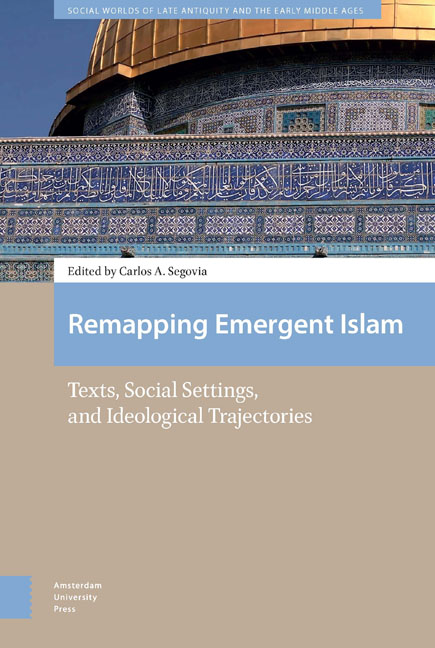Book contents
- Frontmatter
- Contents
- Introduction
- Part 1 Re-Assessing the Hypothesis of a Peripheral Jewish Background
- Part 2 An Encrypted Manichaean / Messalian Matrix?
- Part 3 Measuring the World’s Timeline… and Imagining the Afterlife at the Persian Court?
- Part 4 Conceptual Quicksand, Meta-Narratives of Identity, Texts and their Marginalia
9 - What Do We Mean by THE Qur’ān: On Origins, Fragments, and Inter-Narrative Identity
Published online by Cambridge University Press: 24 November 2020
- Frontmatter
- Contents
- Introduction
- Part 1 Re-Assessing the Hypothesis of a Peripheral Jewish Background
- Part 2 An Encrypted Manichaean / Messalian Matrix?
- Part 3 Measuring the World’s Timeline… and Imagining the Afterlife at the Persian Court?
- Part 4 Conceptual Quicksand, Meta-Narratives of Identity, Texts and their Marginalia
Summary
Abstract
This essay questions the two canonical narratives that hinder our understanding of the Qur’ān as a literary masterpiece: the canonisation of its unwarranted unity as a Sacred Book and the parallel canonisation of a historiographical concept, i.e. the absolute beginning of a presumed Arab conquest of the Near East, the meta-narrative of which unduly reverses cause and effect. Unity and order thereby constitute a twofold obsession ultimately ossified into what may be labelled as the unusual ‘otherness’ of Islam.
Keywords: Late Antiquity, Early Islam, Qur’ān
On Historiographic Metafiction
There are two commonplaces hindering our clear understanding of quranic literary sets in all their complexity, the first one being the canonisation of its unity and compactness as the Sacred Book of a Community, a fact that compels us to consider the Qur’ān as a single, finished, coherent literary whole, subject to the constraints of its owner. An untouched and untouchable textus receptus. From there, and depending on whether it is either considered ‘ours’ or ‘theirs’, further specifications in the kind of approach appear. That is to say, a book and its study are both stigmatised for its declared holiness and its cultural demarcation. This first commonplace does not differ so much from what can be said about other holy books. But the second commonplace makes a great difference. It deals with a contextual narrative fence built to surround that book, the canonisation of a historiographical concept unfailingly related to its writing: the absolute beginning of Islam – as such, normally without any differentiation between a religious system and a culture – from the so called ‘Arab conquest’, forcing us to arrange in order, and consequently, a series of juxtaposed events, but here allegedly dependent on this historiographical concept, the FATḤ, this sudden historical outburst. Juxtaposed events, as I said, such as the collapse of empires, the emergence of Arabic as a cultured language, or the decantation of religious systems out of sectarian blurred borderlines.
- Type
- Chapter
- Information
- Remapping Emergent IslamTexts, Social Settings, and Ideological Trajectories, pp. 221 - 244Publisher: Amsterdam University PressPrint publication year: 2020



